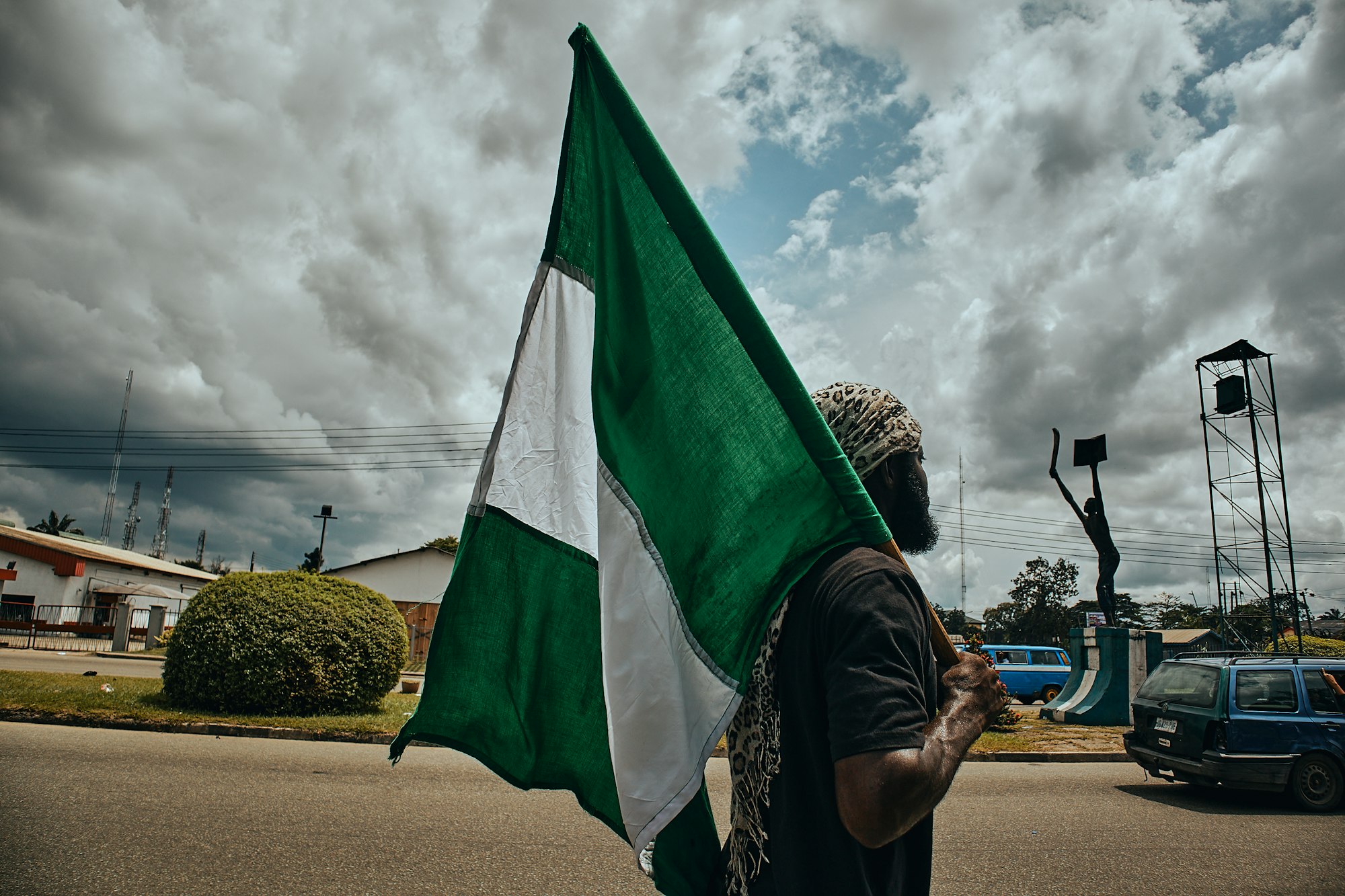Nigerian politics and the insincerity of “The Third Force”

On June 12 1993, Nigerians defied ethno-religious bias and unanimously voted for a man they believed could make the country great - Chief Moshood Abiola of the Social Democratic Party, SDP. Sadly, since then, Nigeria has yet to find a detribalized and trustworthy leader, who genuinely has the interest of the people and a vision for one Nigeria.
Regardless, the narrative of a “Third Force,” a coalition of mega parties, in our current socio-political situation is righteously valid, largely because the major political parties - All Progressives Congress, APC and the People’s Democratic Party, PDP have failed Nigerians.
Nigerians have continued to clamour for leadership with the right perspective, vision, mission and philosophy to drive Nigeria to prosperity, a leadership with a demonstrated readiness and the sincerity for a directional change that will enable the country and its people to attain their full potential.
The problem
There’s no gainsaying the fact that leadership failure is the overarching problem in Nigeria. This failure is enmeshed in abysmal corruption, impunity and lack of transparency in governance. This backdrop is coupled with bitter and money-bag party politics, which has now badly imparted the business of national governance, whose primary goal is to better the lives of the common people.
There is apparently no political ideology or profound value system, which can make people trust the ruling party, APC and the major opposition party, PDP. Rather, high handedness, undemocratic practices, godfatherism and imposition of anointed candidates and party members have reigned supreme, making more members break away from the parties. This development has now made the need for a coalition of the third force more sacrosanct at this time.
One of the issues with the emergence of a Third Force political movement, however, is the narrow and parochial interest of the conveners of such groups, which reflects the lack of sincerity on the part of the promoters of the groups, which has been the reason the idea has not yielded the desired result Nigerians are expecting from it. The peculiar nature of the Nigerian political environment and insufficient mobilization, education and campaign for the third force movement is also a major hindrance.
The body language of the campaigners of the “Third Force” has not suggested that they were ready to form a political force to reckon with. All efforts to form a larger and stronger political platform in the past have failed and it’s almost impractical at this moment to put forward a strong coalition of political parties that can challenge the status quo before the general elections.
“The Third Force” agenda: How serious?
Nigeria has witnessed numerous candidates and political groups have stepped forward in a bid to either contest election or form a coalition, which has now been popularized as “The Third Force,” to oust the two dominant parties in the country with the goal of making a change in national governance.
The crop of politicians pushing the third force agenda has yet to broker a truce on the idea of a mega party.
- Difficult - almost impossible to win an election on a smaller platform - use previous election results to back this up
- When smaller parties coalesce, they still need big names to drive acceptance
- They need representatives in smaller units of government (states, local government, and federal house)
- All the names that have been mentioned have never gotten a combo of 1%
Former Allied Congress Party of Nigeria (ACPN), Dr Oby Ezekwesili and co-convener of the National Consultative Forum, Prof. Pat Utomi, among others are neither in the race. Meanwhile, the 2023 general elections are less than a year. By now, a serious-minded coalition should have announced and registered a political party with the Independent National Electoral Commission (INEC). The implication is that the APC and the PDP will still determine the winner of the 2023 election.
Sowore, Moghalu and contemporaries
Human rights activist, Omoyele Sowore of the African Action Congress (AAC); Fela Durotoye of the Alliance for New Nigeria (ANN), former deputy governor of the Central Bank of Nigeria, CBN, Kingsley Moghalu of Young Progressives Party (YPP), Chris Okotie of the Fresh Democratic Party (FDP) were some of the notable presidential candidates, who took a shot at the presidency in 2019.
These candidates entered the presidential race with their counterparts from the two major political parties in the country: Muhammadu Buhari; All Progressives Congress and Atiku Abubakar; People’s Democratic Party respectively, but all lost the race to Buhari.
Meanwhile, as the 2023 presidential election draws nearer, Sowore and Moghalu seem to be the only presidential candidates within their contemporaries still serious about seeking the presidential bid. The two candidates have been making focal points on what they plan to do if elected into office.
Sowore, however, has been embroiled in a web of crises for doubling as the national chairman of his party and alleged misappropriation of funds donated by the public for his campaign.
Following his declaration to run for the presidency in 2023, there have also been concerns over the manner in which Sowore took presidential campaign rally, tagged; For Swimmers Only: Political Rally Inside a Lake,” to his homestead in Ondo State, where he was seen swimming and having fun with youths in the lake. The activist received backlash for the rally, but as usual he remains unperturbed.
Sowore’s disposition, some of the time, is not considered serious enough for the sophisticated position of presidency in a complex country such as Nigeria, because the presidency is not a child’s play.
If Sowore wants to be taken seriously, he has a huge responsibility to shoulder. He has to clear himself of allegations relating to misappropriation of funds, particularly before presenting himself to Nigerians.
Transparency in governance: Why Nigerians should care
Nigerians need to care about what it’s happening within the government because whatever policies made by the government, we tend to live by it for the entire period an administration will spend in the office. We all need to be aware and make significant contributions to governance, regardless of our level, expertise or geographical location.
We all need to be asking the relevant authorities the right questions to keep them in check. We need to support transparency in government and seek various ways to influence good policies of government through lobbying and civic participation. Political parties should always define and uphold party principles and create a vision for a greater Nigeria of an enviable status in Africa and across the world.
My view and new shreds of evidence
Ahead of the 2023 general elections, I believe neither the ruling APC nor the main opposition, PDP has got anything to offer Nigerians, based on antecedents. Clearly, there’s not any clear cut discrepancy between the two parties.
It’s the same rogues and robbers that we are still recycling since 1999. There’s no form of sound ideological difference or respect for party principles or the rule of law.
The reality is that the political class have failed Nigerians, as a result, we all need to make a difference in 2023 by defying all odds to make our voice heard. Usually, the elites have to create a synergy with the common Nigerians by creating a common goal to beat the challenge before us in 2023 and beyond.
I understand that everybody is fed up with Nigerian politics, but it’s instructive to note here that political apathy is detrimental to our democracy and national development, I will never encourage it. Nigerians have to stop the new culture of sitting at home agonizing and engaged in lamentations and trading blame games. We should not despair, rather we should get involved.
We must do everything within our capacity to reclaim our lost glory and build for the future of our country. We must reposition Nigeria to return to its rightful place among the comity of nations.
Solution
- Politics is local: It’s instructive to note that the third force should intensify efforts at participating actively at local levels where they can win elections and contribute to governance. The value and quality of the capacity they demonstrate in those positions over time will present them as national figures. People rise through the ranks in politics. It is important to examine leadership capacity and sellability locally and nationally.
- Improvement on the APC blueprint: Buhari from the north (12m votes), Tinubu from the south (Majority of south-west states) + aggrieved politicians from ruling party.
In light of this, they should get involved and contest elections for lower political positions. To make changes in governance with all your big ideas, you need to win elections first. If we have tens of Moghalus and Ezekwesilis in the national assembly, they will make more impact by driving much desired legislative reforms and policies that influence change than having Moghalu alone as the president.
NB: I wrote this article before Mr. Peter Obi defected to LP to contest the presidential election.
